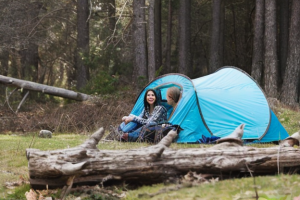News Center+ 查看更多
Enhancing Camping Safety Through Comprehensive Training Programs+ 查看更多
One of the key areas of focus has been the development of both online courses and in-person training sessions aimed at increasing the self-protection awareness and survival skills of campers. These educational efforts are crucial for ensuring that individuals are equipped with the necessary knowledge to handle unexpected situations in the wild. Such training covers a wide array of topics, from setting up a secure campsite to understanding how to navigate through various natural terrains effectively.
Addressing the Threats: Natural Disasters and Wildlife Encounters
The unpredictability of natural disasters poses a significant risk to outdoor enthusiasts. Companies are now prioritizing the dissemination of information on how to prepare for and respond to events such as floods, wildfires, and severe weather conditions. The goal is to instill a sense of preparedness that goes beyond the basic camping checklist, ensuring that campers can adapt to rapidly changing circumstances.
Additionally, with the encroachment of human activities into previously undisturbed habitats, encounters with wildlife have become more frequent. Educational initiatives have expanded to include guidance on how to coexist with the natural inhabitants of camping areas. This includes understanding animal behavior, recognizing signs of distress or aggression, and knowing the appropriate actions to take in the event of an encounter to ensure the safety of both humans and wildlife.
Implementing a Culture of Preparedness
Companies have begun to integrate these training programs into their customer onboarding process, emphasizing the importance of safety from the outset. The integration of safety training with the recreational aspect of camping helps foster a culture of preparedness among campers. This proactive approach can lead to a significant reduction in accidents and incidents in the wilderness, ultimately enhancing the overall camping experience.
The industry's move towards comprehensive safety training is not just about equipping individuals with knowledge; it's about transforming the way people view and engage with the natural world. By adopting a more informed and respectful approach to camping, enthusiasts can enjoy the wonders of the outdoors while minimizing the risks to themselves and the environment.
Conclusion
The shift towards prioritizing camping safety and training is a testament to the industry's commitment to responsible stewardship of the outdoors. By harnessing the power of education, companies are paving the way for a safer, more enjoyable camping experience for all. The importance of these educational efforts cannot be overstated, as they hold the potential to save lives and preserve the natural beauty of our wilderness areas for future generations.

